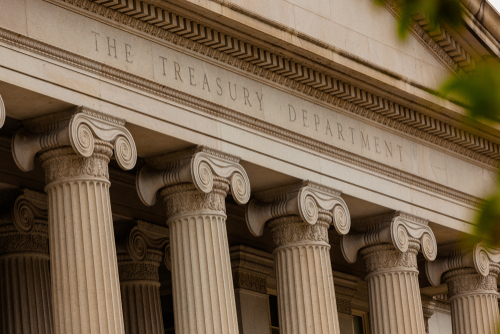The U.S. Department of the Treasury’s Office of Foreign Assets Control (OFAC) sanctioned four Mexican individuals and 13 Mexican companies linked to timeshare fraud.

The individuals and companies are based in or near Puerto Vallarta, a popular tourist destination that also serves as a strategic stronghold for the Cartel de Jalisco Nueva Generacion (CJNG) cartel. CJNG is a U.S.-designated Foreign Terrorist Organization (FTO) that OFAC says is supplementing its drug trafficking proceeds with alternative revenue streams such as timeshare fraud and fuel theft.
“We are coming for terrorist drug cartels like Cartel de Jalisco Nueva Generacion that are flooding our country with fentanyl,” Secretary of the Treasury Scott Bessent said. “These cartels continue to create new ways to generate revenue to fuel their terrorist operations. At President Trump’s direction, we will continue our effort to completely eradicate the cartels’ ability to generate revenue, including their efforts to prey on elderly Americans through timeshare fraud.”
According to the Treasury, Mexico-based cartels have been targeting U.S. owners of timeshares through call centers in Mexico staffed by telemarketers fluent in English.
The fraud may include timeshare exit scams, or timeshare resale scams, timeshare re-rent scams, and timeshare investment scams. The common theme is that victims are asked to pay advance “fees” and “taxes” before receiving money supposedly owed to them.
According to the FBI, approximately 6,000 U.S. victims reported losing nearly $300 million between 2019 and 2023 to timeshare fraud schemes in Mexico. In 2024 alone, the FBI received nearly 900 complaints concerning timeshare fraud schemes in Mexico with reported losses of over $50 million.
As a result of today’s action, all property and interests in property of the designated or blocked persons that are in the United States or in the possession or control of U.S. persons are blocked and must be reported to OFAC. In addition, any entities that are owned, directly or indirectly, individually or in the aggregate, 50 percent or more by one or more blocked persons are also blocked. Further, OFAC’s regulations generally prohibit all transactions by U.S. persons or within (or transiting) the United States that involve any property or interests in property of blocked persons.
Violations of U.S. sanctions may result in the imposition of civil or criminal penalties on U.S. and foreign persons.